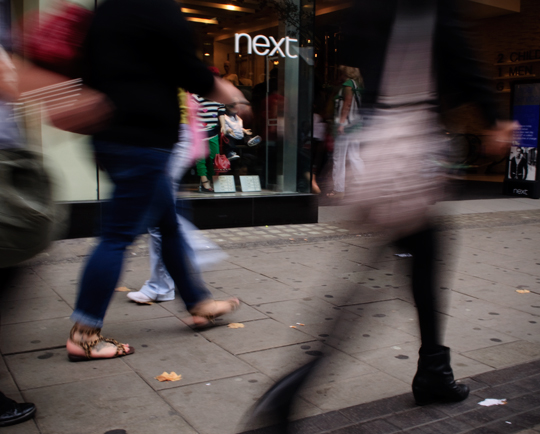Household Bills
Retail gloom continues

The latest UK retail sales data from the British Retail Consortium and KPMG continued to show weakness in December, with rising food costs leaving less for Christmas gifts.
The data showed sales increasing by 0.6% on a like-for-like basis from December 2016. On a total basis – taking into account new stores – sales rose 1.4%, against growth of 1.7% in December 2016. This is consistent with the 3-month and 12-month averages of 1.1% and 1.5% respectively.
Over the three months to December 2017, in-store sales of non-food items declined 3.7% on a total basis and 4.4% on a like-for-like basis, the steepest drop since the group’s records began in December 2012.
Helen Dickinson, chief executive of the British Retail Consortium, said: “There was both light and dark in this year’s Christmas trading period. Growth in spending was in line with the, albeit modest, average for the year. However, the divergence between growth in sales of food and non-food has never been so stark.
“With inflation outpacing income growth, shoppers continued to see more of their spending power absorbed by essential items, including food, leaving less left over for buying Christmas gifts.”
Laith Khalaf, senior analyst at Hargreaves Lansdown, said: “These figures suggest it was a bleak midwinter for general retailers on the UK high street, with sales suffering their biggest dip since the financial crisis. Consumers have tightened their belts and focused their spending power on essential items, in order to cope with stagnant wages and rising inflation.
“There will be some winners and losers within the general retail space, but the overall pie is shrinking. That’s a tough environment in any industry, let alone one which is undergoing the upheaval of a digital revolution, not to mention the additional costs arising from the National Living Wage and pension auto-enrolment.”
Khalaf said this may also influence the Bank of England’s interest rate decision later this year, deferring any further rate rises. He added: “The central bank does anticipate better wage growth in the coming year, and a drop off in inflation. If these materialise as expected, it will represent a welcome abatement of economic headwinds in the retail sector, for those left standing.”